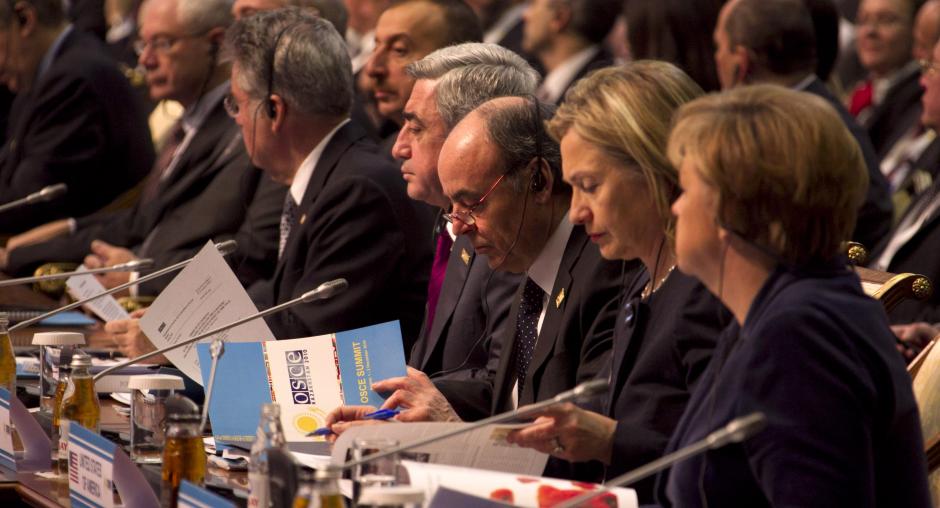OSCE heads of institutions emphasize importance of rights in discussions on Euro-Atlantic and Eurasian security

ASTANA, 1 December 2010 - Respect for human rights and fundamental freedoms must underpin sustainable security in the Euro-Atlantic and Eurasian area, emphasized the heads of OSCE institutions on human rights and democratic institutions, media freedom and national minorities at the OSCE Summit which began in Astana today.
"As Heads of State at the Astana Summit begin the intensive process of agreeing a framework for action for the OSCE, it is critical that we take advantage of the OSCE's great strength - its comprehensive approach, which recognizes that respect for human rights, fundamental freedoms, democracy and the rule of law constitutes one of the key foundations of security within and among States," said the Director of the OSCE's Office for Democratic Institutions and Human Rights, Janez Lenarcic.
OSCE Representative on Freedom of the Media Dunja Mijatovic said: "There is no security without the free flow of information. Freedom of expression and a free media play important roles in fostering meaningful debate on hard security matters, and can help us to effectively address new challenges such as transnational threats. Now more than ever it is essential that we renew, revitalize and reinvigorate our basic commitments in the human dimension - including those regarding media freedom."
OSCE High Commissioner on National Minorities Knut Vollebaek said: "The OSCE area still faces threats to stability stemming from tensions in state-minority relations, interethnic strife and unresolved conflicts. What is needed is the political will to implement existing recommendations and commitments to effectively address these challenges. We must strengthen the capacity of States to fulfil their responsibilities with respect to the protection of human rights, including those of minorities, for the sake of our collective security in the OSCE area."
The Astana Summit brings together Heads of State and Government from the 56 OSCE participating States and 12 Partners for Co-operation, as well as from other international and regional organizations. The Summit is the OSCE's first since the Istanbul Summit in 1999.
Plenary sessions will continue until 2 December.
